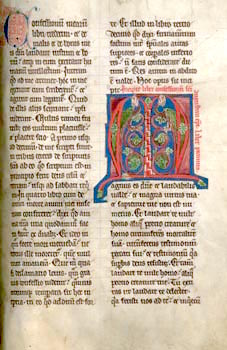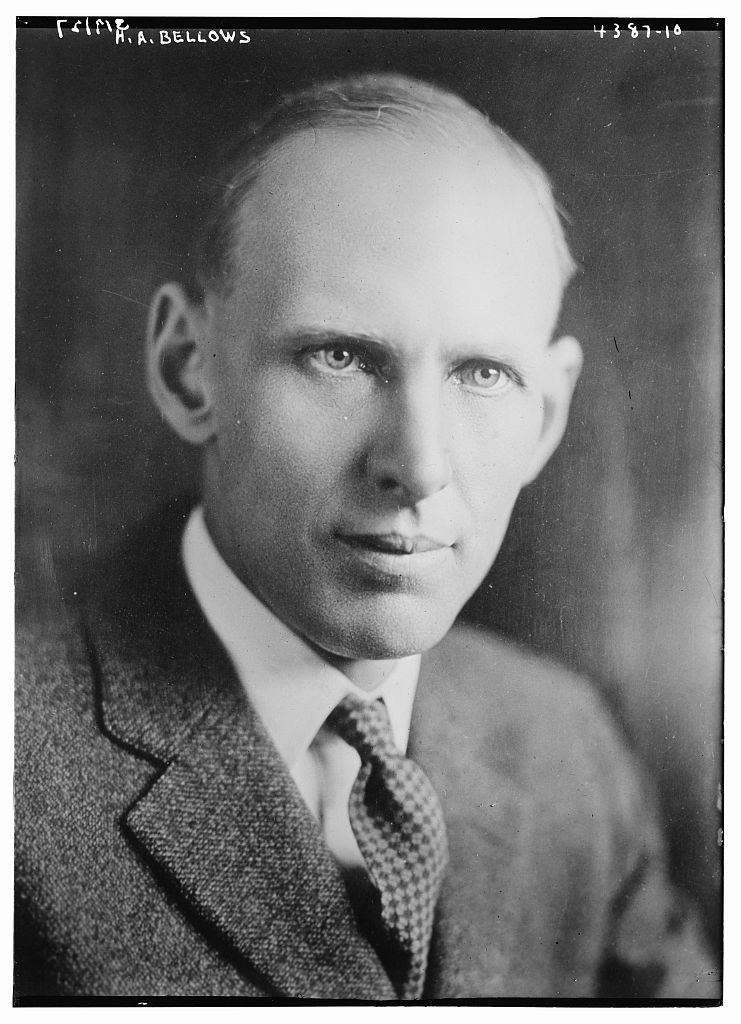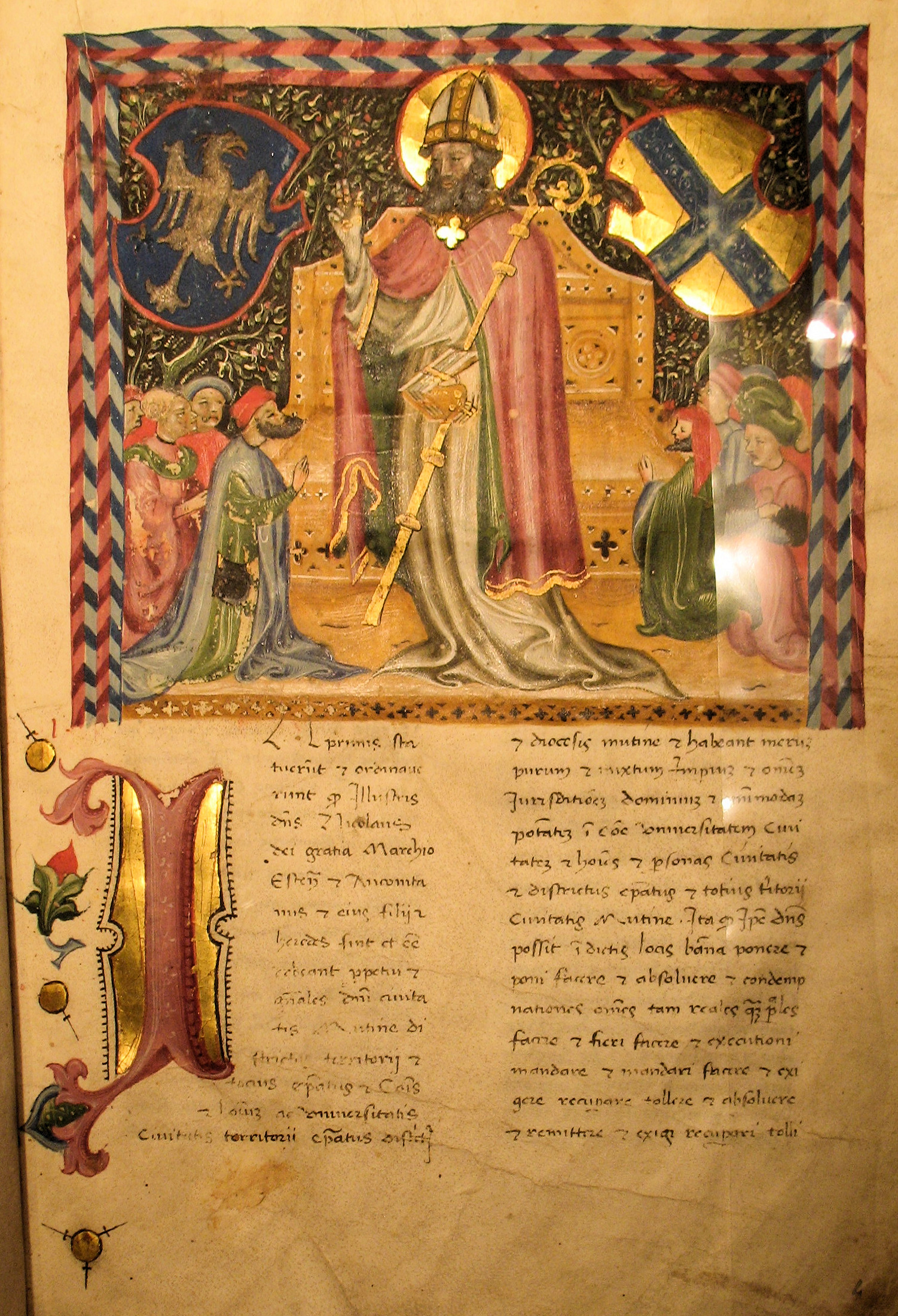|
Historia Calamitatum
''Historia Calamitatum'' (known in English as ''The Story of My Misfortunes'' or ''The History of My Calamities''), also known as ''Abaelardi ad Amicum Suum Consolatoria,'' is an autobiographical work in Latin by Peter Abelard (1079–1142), a medieval French pioneer of scholastic philosophy. The work, written in 1132 or soon after, is one of the first autobiographical works in medieval Western Europe, written in the form of a letter (and, as such, is clearly influenced by Augustine's '' Confessions''). The letter is an extensive and honest self-analysis of Abelard up to the age of about fifty-four, and provides readers with knowledge of his views of women, learning, monastic life, Church and State combined, and the social milieu of the time. It should be particularly noted that the work was written at a time when Western Europe had only recently surfaced into the world of philosophy. Abelard emphasizes how persecuted he feels by his peers throughout the work. He quotes saints, ... [...More Info...] [...Related Items...] OR: [Wikipedia] [Google] [Baidu] |
Latin
Latin (, or , ) is a classical language belonging to the Italic branch of the Indo-European languages. Latin was originally a dialect spoken in the lower Tiber area (then known as Latium) around present-day Rome, but through the power of the Roman Republic it became the dominant language in the Italian region and subsequently throughout the Roman Empire. Even after the fall of Western Rome, Latin remained the common language of international communication, science, scholarship and academia in Europe until well into the 18th century, when other regional vernaculars (including its own descendants, the Romance languages) supplanted it in common academic and political usage, and it eventually became a dead language in the modern linguistic definition. Latin is a highly inflected language, with three distinct genders (masculine, feminine, and neuter), six or seven noun cases (nominative, accusative, genitive, dative, ablative, and vocative), five declensions, four verb conjuga ... [...More Info...] [...Related Items...] OR: [Wikipedia] [Google] [Baidu] |
Peter Abelard
Peter Abelard (; french: link=no, Pierre Abélard; la, Petrus Abaelardus or ''Abailardus''; 21 April 1142) was a medieval French scholastic philosopher, leading logician, theologian, poet, composer and musician. This source has a detailed description of his philosophical work. In philosophy he is celebrated for his logical solution to the problem of universals via nominalism and conceptualism and his pioneering of intent in ethics. Often referred to as the " Descartes of the twelfth century", he is considered a forerunner of Rousseau, Kant, and Spinoza. He is sometimes credited as a chief forerunner of modern empiricism. In history and popular culture, he is best known for his passionate and tragic love affair, and intense philosophical exchange, with his brilliant student and eventual wife, Héloïse d'Argenteuil. He was a defender of women and of their education. After having sent Héloïse to a convent in Brittany to protect her from her abusive uncle who did not want her t ... [...More Info...] [...Related Items...] OR: [Wikipedia] [Google] [Baidu] |
Scholasticism
Scholasticism was a medieval school of philosophy that employed a critical organic method of philosophical analysis predicated upon the Aristotelian 10 Categories. Christian scholasticism emerged within the monastic schools that translated scholastic Judeo—Islamic philosophies, and thereby "rediscovered" the collected works of Aristotle. Endeavoring to harmonize his metaphysics and its account of a prime mover with the Latin Catholic dogmatic trinitarian theology, these monastic schools became the basis of the earliest European medieval universities, and scholasticism dominated education in Europe from about 1100 to 1700. The rise of scholasticism was closely associated with these schools that flourished in Italy, France, Portugal, Spain and England. Scholasticism is a method of learning more than a philosophy or a theology, since it places a strong emphasis on dialectical reasoning to extend knowledge by inference and to resolve contradictions. Scholastic thought is ... [...More Info...] [...Related Items...] OR: [Wikipedia] [Google] [Baidu] |
Philosophy
Philosophy (from , ) is the systematized study of general and fundamental questions, such as those about existence, reason, knowledge, values, mind, and language. Such questions are often posed as problems to be studied or resolved. Some sources claim the term was coined by Pythagoras ( BCE), although this theory is disputed by some. Philosophical methods include questioning, critical discussion, rational argument, and systematic presentation. in . Historically, ''philosophy'' encompassed all bodies of knowledge and a practitioner was known as a ''philosopher''."The English word "philosophy" is first attested to , meaning "knowledge, body of knowledge." "natural philosophy," which began as a discipline in ancient India and Ancient Greece, encompasses astronomy, medicine, and physics. For example, Newton's 1687 ''Mathematical Principles of Natural Philosophy'' later became classified as a book of physics. In the 19th century, the growth of modern research universiti ... [...More Info...] [...Related Items...] OR: [Wikipedia] [Google] [Baidu] |
Augustine Of Hippo
Augustine of Hippo ( , ; la, Aurelius Augustinus Hipponensis; 13 November 354 – 28 August 430), also known as Saint Augustine, was a theologian and philosopher of Berber origin and the bishop of Hippo Regius in Numidia, Roman North Africa. His writings influenced the development of Western philosophy and Western Christianity, and he is viewed as one of the most important Church Fathers of the Latin Church in the Patristic Period. His many important works include ''The City of God'', '' On Christian Doctrine'', and '' Confessions''. According to his contemporary, Jerome, Augustine "established anew the ancient Faith". In his youth he was drawn to the eclectic Manichaean faith, and later to the Hellenistic philosophy of Neoplatonism. After his conversion to Christianity and baptism in 386, Augustine developed his own approach to philosophy and theology, accommodating a variety of methods and perspectives. Believing the grace of Christ was indispensable to human freed ... [...More Info...] [...Related Items...] OR: [Wikipedia] [Google] [Baidu] |
Confessions (Augustine)
''Confessions'' (Latin: ''Confessiones'') is an autobiographical work by Saint Augustine, consisting of 13 books written in Latin between AD 397 and 400. The work outlines Saint Augustine's sinful youth and his conversion to Christianity. Modern English translations of it are sometimes published under the title ''The Confessions of Saint Augustine'' in order to distinguish the book from other books with similar titles. Its original title was ''Confessions in Thirteen Books'', and it was composed to be read out loud with each book being a complete unit. ''Confessions'' is generally considered one of Augustine's most important texts. It is widely seen as the first Western Christian autobiography ever written (Ovid had invented the genre at the start of the first century AD with his ''Tristia'') and was an influential model for Christian writers throughout the Middle Ages. Henry Chadwick wrote that ''Confessions'' will "always rank among the great masterpieces of western literature" ... [...More Info...] [...Related Items...] OR: [Wikipedia] [Google] [Baidu] |
Christ
Jesus, likely from he, יֵשׁוּעַ, translit=Yēšūaʿ, label=Hebrew/Aramaic ( AD 30 or 33), also referred to as Jesus Christ or Jesus of Nazareth (among other Names and titles of Jesus in the New Testament, names and titles), was a first-century Jews, Jewish preacher and religious leader; he is the central figure of Christianity, the Major religious groups, world's largest religion. Most Christians believe he is the Incarnation (Christianity), incarnation of God the Son and the awaited Messiah#Christianity, Messiah (the Christ (title), Christ) prophesied in the Hebrew Bible. Virtually all modern scholars of antiquity agree that Historicity of Jesus, Jesus existed historically. Quest for the historical Jesus, Research into the historical Jesus has yielded some uncertainty on the historical reliability of the Gospels and on how closely the Jesus portrayed in the New Testament reflects the historical Jesus, as the only detailed records of Jesus' life are contained in ... [...More Info...] [...Related Items...] OR: [Wikipedia] [Google] [Baidu] |
Henry Adams Bellows (businessman)
Henry Adams Bellows (September 22, 1885 – December 29, 1939) was a newspaper editor and radio executive who was an early member of the U.S. Federal Communications Commission. He is also known for his translation of the ''Poetic Edda'' for The American-Scandinavian Foundation. Life and career Born in Portland, Maine, Bellows graduated from Harvard University in 1906, and then taught English as an assistant there for three years. He received his Ph.D. in 1910 for a dissertation in comparative literature entitled ''The Relations between Prose and Metrical Composition in Old Norse Literature'' and then became an assistant professor of rhetoric at the University of Minnesota.William M. Emery, ''The Howland Heirs: Being the Story of a Family and a Fortune and the Inheritance of a Trust Established for Mrs. Hetty H.R. Green'', Bedford, Massachusetts: Anthony, 1919p. 333 From 1912 to 1919 he was managing editor of ''The Bellman'', a Minneapolis literary magazine, vice president of t ... [...More Info...] [...Related Items...] OR: [Wikipedia] [Google] [Baidu] |
Medieval Literature
Medieval literature is a broad subject, encompassing essentially all written works available in Europe and beyond during the Middle Ages (that is, the one thousand years from the fall of the Western Roman Empire ca. AD 500 to the beginning of the Renaissance in the 14th, 15th or 16th century, depending on country). The literature of this time was composed of religious writings as well as secular works. Just as in modern literature, it is a complex and rich field of study, from the utterly sacred to the exuberantly profane, touching all points in-between. Works of literature are often grouped by place of origin, language, and genre. Languages Outside of Europe, medieval literature was written in Ethiopic, Syriac, Coptic, Japanese, Chinese, and Arabic, among many other languages. In Western Europe, Latin was the common language for medieval writing, since Latin was the language of the Roman Catholic Church, which dominated Western and Central Europe, and since the Church was v ... [...More Info...] [...Related Items...] OR: [Wikipedia] [Google] [Baidu] |
Autobiographies
An autobiography, sometimes informally called an autobio, is a self-written account of one's own life. It is a form of biography. Definition The word "autobiography" was first used deprecatingly by William Taylor in 1797 in the English periodical ''The Monthly Review'', when he suggested the word as a hybrid, but condemned it as "pedantic". However, its next recorded use was in its present sense, by Robert Southey in 1809. Despite only being named early in the nineteenth century, first-person autobiographical writing originates in antiquity. Roy Pascal differentiates autobiography from the periodic self-reflective mode of journal or diary writing by noting that " utobiographyis a review of a life from a particular moment in time, while the diary, however reflective it may be, moves through a series of moments in time". Autobiography thus takes stock of the autobiographer's life from the moment of composition. While biographers generally rely on a wide variety of documents and ... [...More Info...] [...Related Items...] OR: [Wikipedia] [Google] [Baidu] |








